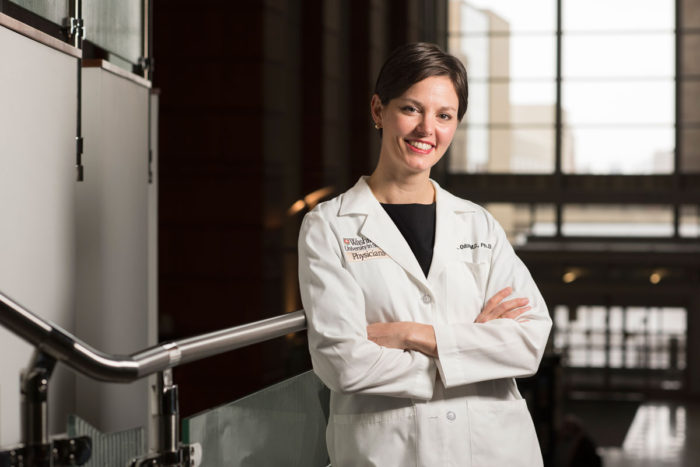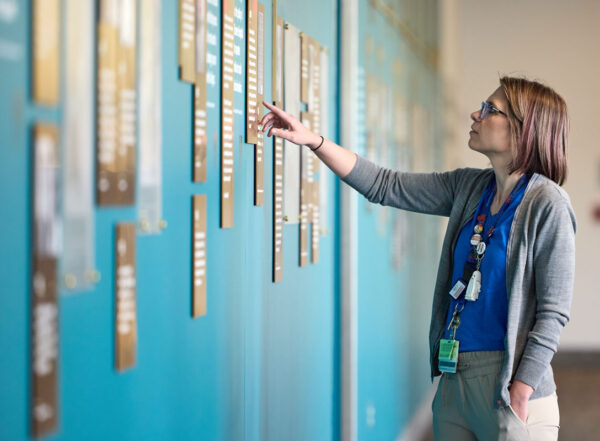Odom receives prestigious award to further malaria research
Support from Burroughs Wellcome Fund will boost research into the disease
 Tim Parker
Tim ParkerWashington University School of Medicine's Audrey R. Odom, MD, PhD, has received a five-year, $500,000 award from the Burroughs Wellcome Fund to further her research into malaria.
Audrey R. Odom, MD, PhD, a noted malaria researcher at Washington University School of Medicine in St. Louis, has received a five-year, $500,000 award from the Burroughs Wellcome Fund to further her research into the parasitic disease.
The nonprofit organization selected Odom, an associate professor of pediatrics and of molecular microbiology, as one of 10 recipients of the 2016 Investigators in the Pathogenesis of Infectious Diseases Award. The Burroughs Wellcome Fund, which supports biomedical science through research and education, noted the funding honors “the scientific excellence and innovation of the proposal, the strength of the scholarly environment at the institution, and the accomplishments of Audrey as an independent researcher.”
Gary A. Silverman, MD, PhD, the Harriet B. Spoehrer Professor and head of the Department of Pediatrics, called Odom one of the university’s finest young investigators. “She has a stellar global reputation for her malaria research,” he said. “This award is a testament to her outstanding scientific accomplishments and future studies on this very important world health problem.”
Malaria is a potentially deadly — but also preventable and curable — disease transmitted by mosquitoes. It is most prevalent in younger children in Africa. In 2015, malaria globally affected 214 million people worldwide and caused 438,000 deaths, according to the World Health Organization.
Odom’s research lab focuses on the chemical ecology of malaria parasites, with the goal of developing diagnostic tools and new treatments. Odom and her colleagues are developing a device that would detect malaria with a simple, inexpensive breath test, similar to a breathalyzer used to measure blood alcohol content.
“This award will allow us to move forward in our work to understand why malaria parasites make volatile compounds,” said Odom, who discussed the research late last year during a TED Talk in Kansas City, Mo. “It gives us the freedom to explore our ‘high risk-high reward’ research, meaning the studies aren’t meant to make incremental advances, but rather to have the potential for opening up new fields.
“These studies are otherwise difficult to fund since they necessarily have a higher failure rate,” Odom said. “But they have a great potential to be transformative.”








